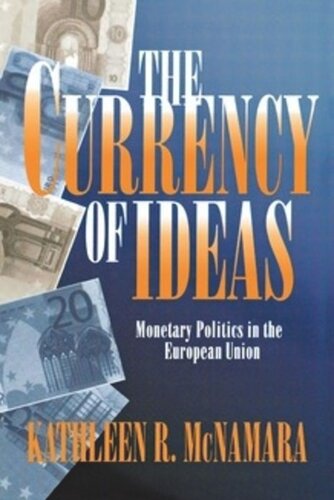

Most ebook files are in PDF format, so you can easily read them using various software such as Foxit Reader or directly on the Google Chrome browser.
Some ebook files are released by publishers in other formats such as .awz, .mobi, .epub, .fb2, etc. You may need to install specific software to read these formats on mobile/PC, such as Calibre.
Please read the tutorial at this link: https://ebookbell.com/faq
We offer FREE conversion to the popular formats you request; however, this may take some time. Therefore, right after payment, please email us, and we will try to provide the service as quickly as possible.
For some exceptional file formats or broken links (if any), please refrain from opening any disputes. Instead, email us first, and we will try to assist within a maximum of 6 hours.
EbookBell Team

5.0
78 reviewsWhy have the states of Europe agreed to create an Economic and Monetary Union (EMU) and a single European currency? What will decide the fate of this bold project? This book explains why monetary integration has deepened in Europe from the Bretton Woods era to the present day. McNamara argues that the development of a neoliberal economic policy consensus among European leaders in the years after the first oil crisis was crucial to stability in the European Monetary System and progress towards EMU. She identifies two factors, rising capital mobility and changing ideas about the government's proper role in monetary policymaking, as critical to the neoliberal consensus but warns that unresolved social tensions in this consensus may provoke a political backlash against EMU and its neoliberal reforms.McNamara's findings are relevant not only to European monetary integration, but to more general questions about the effects of international capital flows on states. Although this book delineates a range of constraints created by economic interdependence, McNamara rejects the notion that international market forces simply dictate government policy choice. She demonstrates that the process of neoliberal policy change is a historically dependent one, shaped by policymakers' shared beliefs and interpretations of their experiences in the global economy.